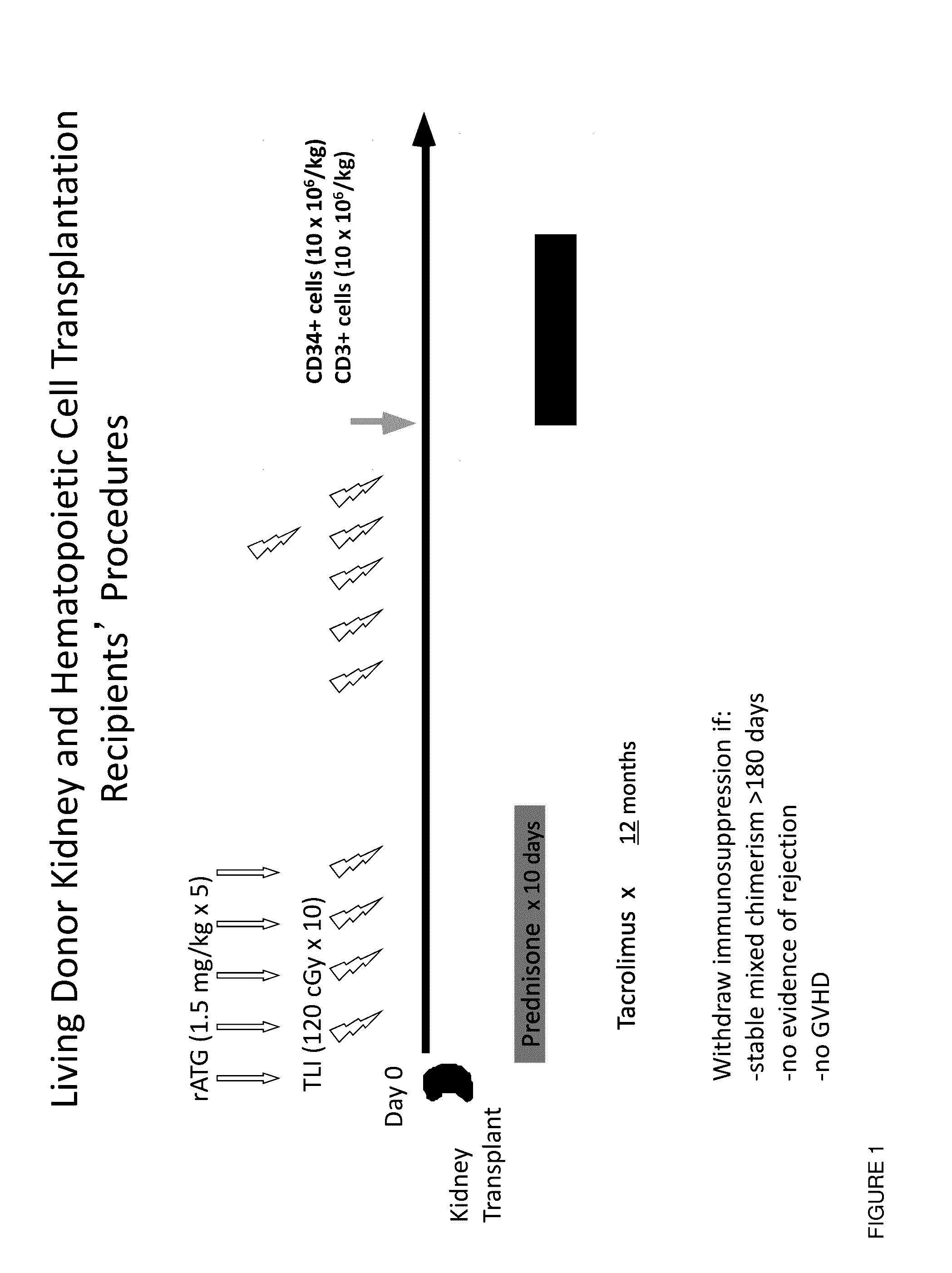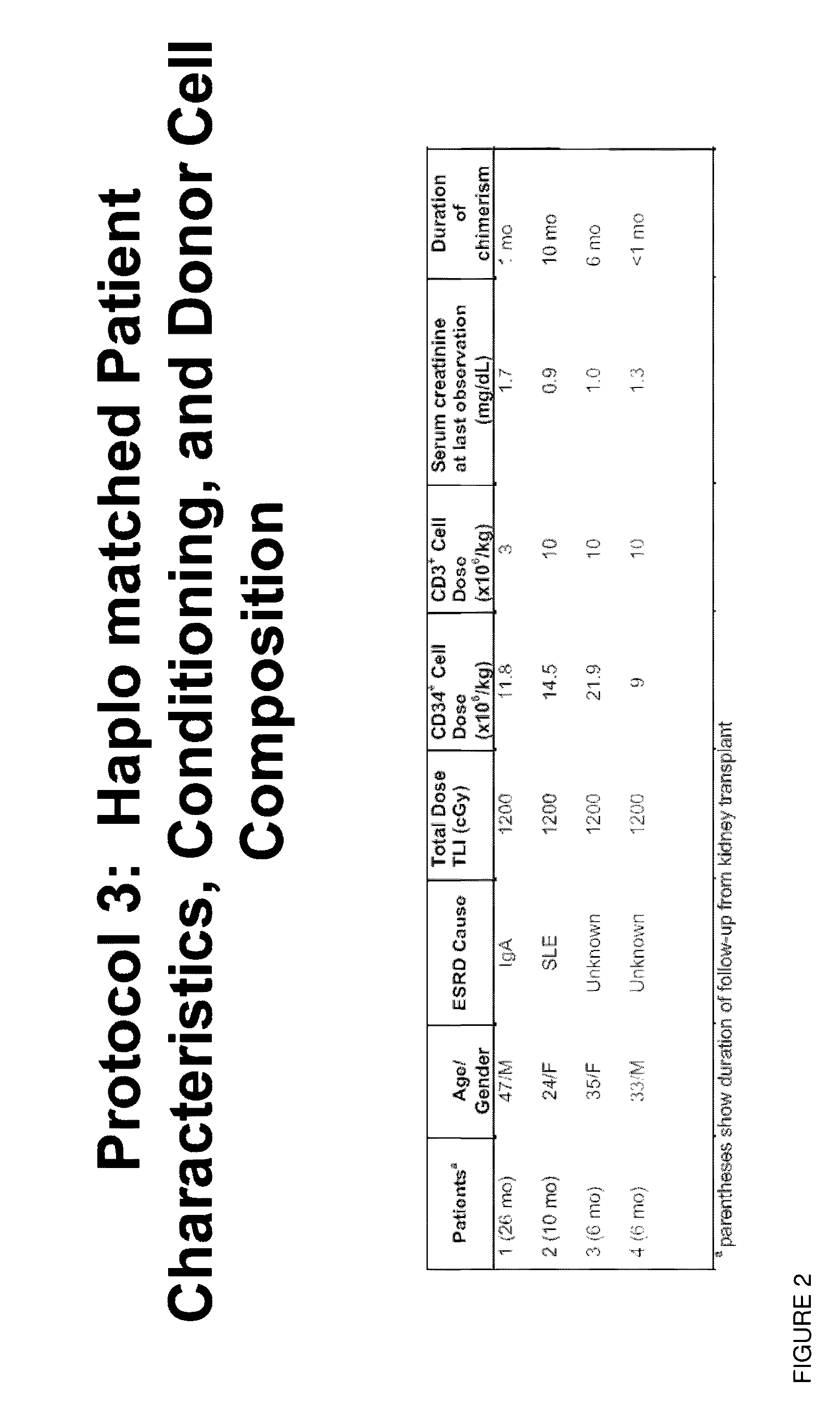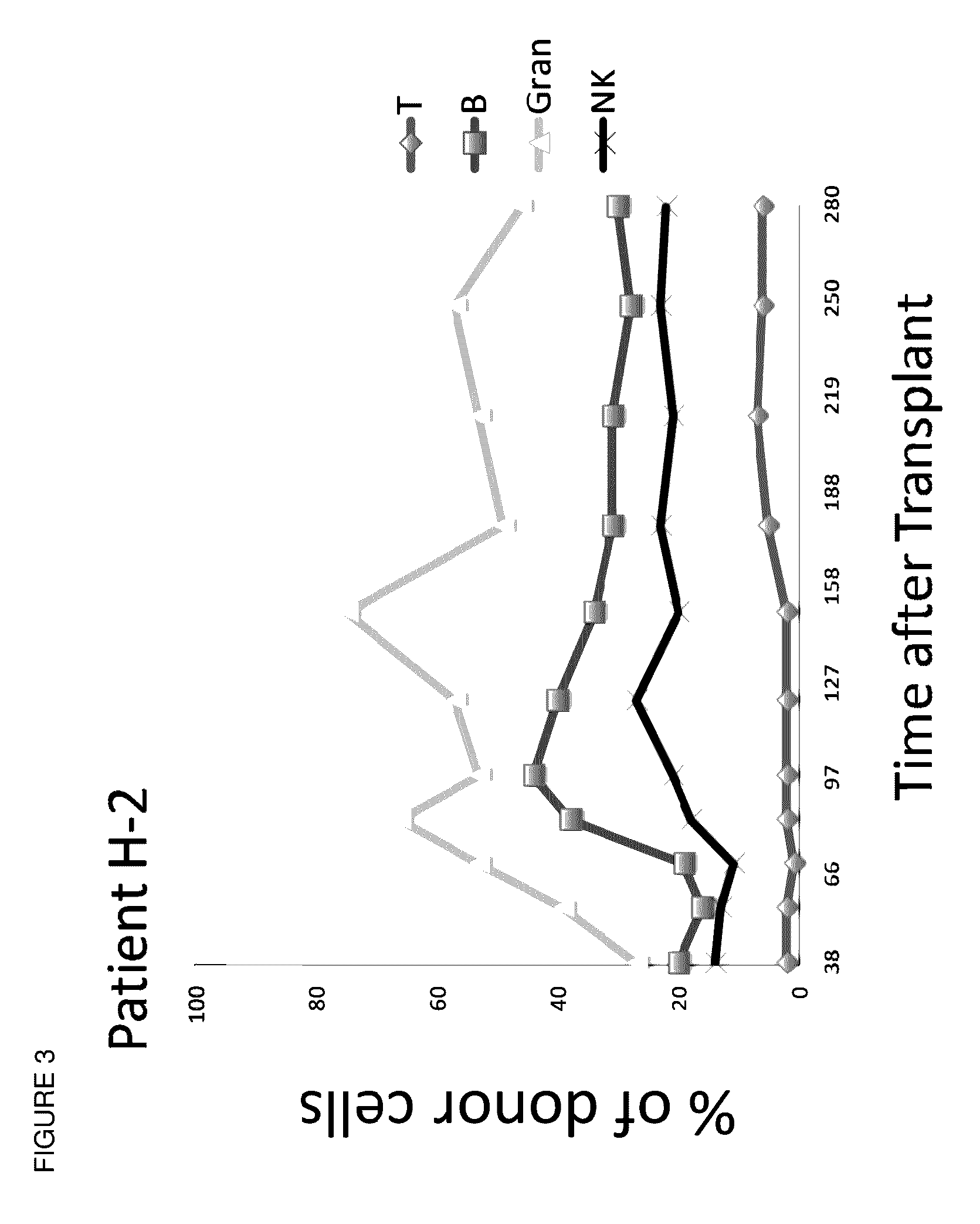Combined organ and hematopoietic cells for transplantation tolerance of HLA mismatched grafts
a technology of hematopoietic cells and combined organs, which is applied in the direction of antibody medical ingredients, peptide/protein ingredients, immunological disorders, etc., can solve the problems of increasing the risk of infection and cancer, high cost, and reducing the ability of immune suppression to suppress an individual's immune system
- Summary
- Abstract
- Description
- Claims
- Application Information
AI Technical Summary
Benefits of technology
Problems solved by technology
Method used
Image
Examples
example 1
TLI and ATG Conditioning for Combined Kidney and Blood Stem Cell Transplantation
[0068]Immune tolerance to HLA haplotype matched living related donor kidney allografts is developed in order to remove the requirement for the lifelong use of immunosuppressive drugs and to improve the long term graft survival. Currently, these haplotype matched recipients account for about half of living related donor kidney transplants performed at most medical centers in the United States. During the past 10 years an increasing proportion of grafts in most centers were from living related donors as an alternative to cadaver grafts. Although the living related donor transplants have improved survival as compared to cadaver transplants, about 40 to 50% of the living donor grafts are still lost within about 10 years. In addition, the recipients usually receive a mixture of 3 maintenance immunosuppressive drugs including a calcineurin inhibitor, prednisone, and mycophenolate mofetil. The latter drugs have...
PUM
| Property | Measurement | Unit |
|---|---|---|
| time | aaaaa | aaaaa |
| time | aaaaa | aaaaa |
| weight | aaaaa | aaaaa |
Abstract
Description
Claims
Application Information
 Login to View More
Login to View More - R&D
- Intellectual Property
- Life Sciences
- Materials
- Tech Scout
- Unparalleled Data Quality
- Higher Quality Content
- 60% Fewer Hallucinations
Browse by: Latest US Patents, China's latest patents, Technical Efficacy Thesaurus, Application Domain, Technology Topic, Popular Technical Reports.
© 2025 PatSnap. All rights reserved.Legal|Privacy policy|Modern Slavery Act Transparency Statement|Sitemap|About US| Contact US: help@patsnap.com



